New clinic specializes in preconception, pregnancy care for patients with IBD
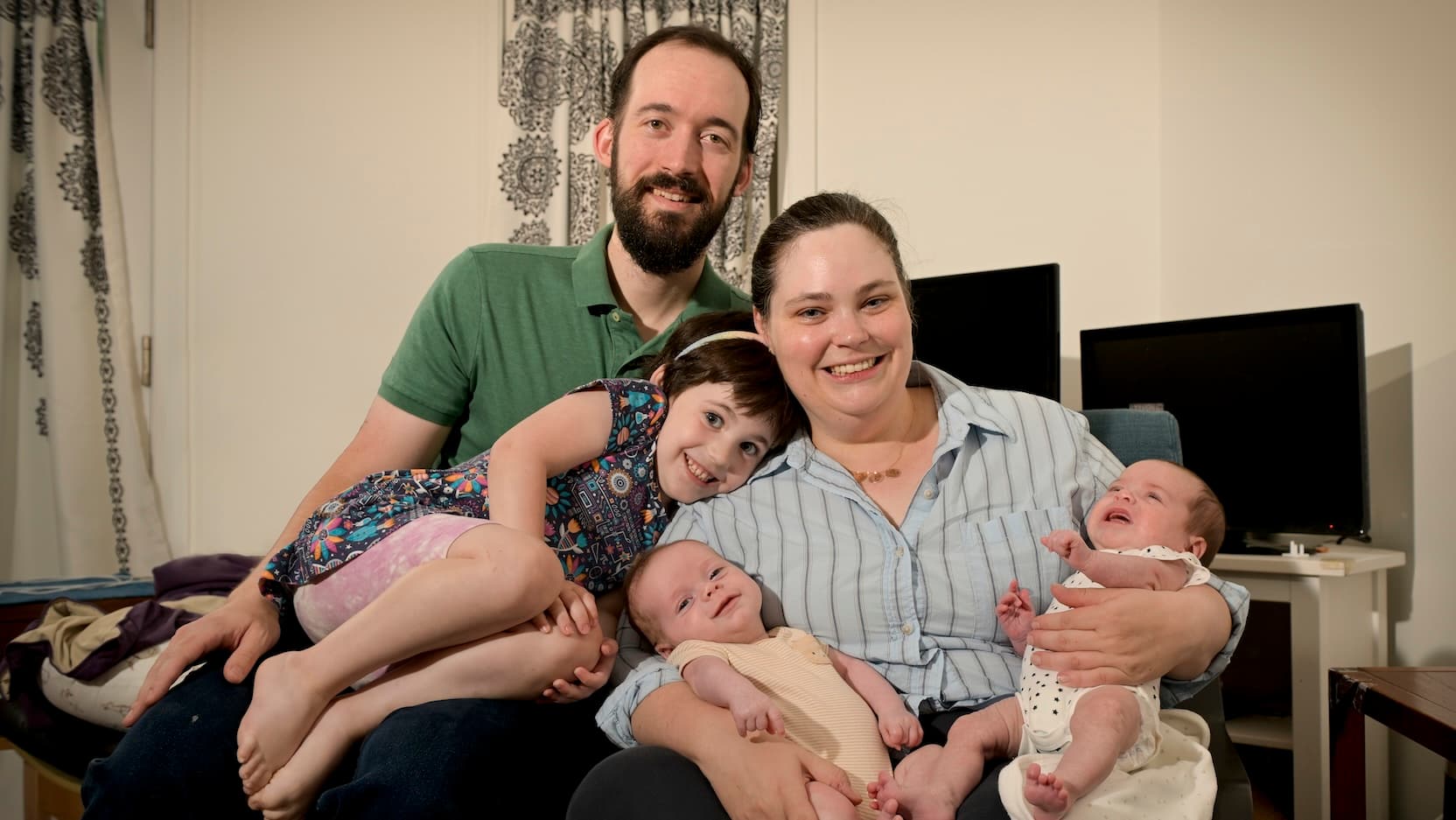
Crohn’s disease complicated the birth of Elizabeth Huggins’ first child in 2020.
Even though she was in remission from inflammatory bowel disease (IBD), which causes inflammation of the digestive tract, Huggins still had gestational hypertension, a high blood pressure condition common among pregnant IBD patients.
During labor, the hypertension developed into preeclampsia, where blood pressure rises to dangerously high levels, threatening the mother and baby.
Even though a maternal-fetal medicine (MFM) doctor — a specialist in high-risk pregnancies — is recommended for IBD patients, Huggins’ obstetrician-gynecologist (OB/GYN) at the time said she didn’t need one because her disease was in remission.
Huggins' OB/GYN care team was unprepared to care for IBD patients before or after birth, she said, and didn't know which approved, safe pain medications she could take. It caused her to have unnecessary pain and stress following her unplanned C-section.
"There wasn't any communication between my GI (gastrointestinal) and OB/GYN doctors during my first pregnancy, and I ended up as the go-between,” she said.
When Huggins was ready to have another baby in 2024, she did something different: she came to the University of Chicago Medicine. Their multidisciplinary IBD and MFM care would soon become what is now the new Pregnancy and Pre-conception Inflammatory Bowel Disease (PPIBD) Clinic.
The specialized PPIBD clinic, one of just a few in the country, has gastroenterologists and a maternal-fetal medicine doctor who work together to help pregnant women with Crohn’s disease and ulcerative colitis.
They use intestinal ultrasound, a state-of-the-art IBD monitoring tool that can detect even mild, symptomless inflammation that can be detrimental to pregnancy. UChicago Medicine is one of only a few hospital systems in North America to offer expertise in intestinal ultrasound, which is done in-office in a matter of minutes and doesn’t require preparation or radiation exposure.
“It’s absolutely perfect for pregnancy because it’s completely safe to do and there is no risk to the baby, unlike a colonoscopy or a CAT scan that uses radiation,” said Andrew C. Rausch, MD, a UChicago Medicine maternal-fetal medicine doctor who works with the clinic.
Why a specialized IBD pregnancy clinic is important
IBD is complex, with many variables, medications and treatment strategies. If not in deep remission, the disease can cause challenges and complications to a pregnancy.
“A flare-up is not going to cause a birth defect,” Rausch said. “But it might lead to a placenta that doesn’t work properly, or cause a growth restriction because there’s not enough nutrition. Or it can lead to pre-term labor or pre-term delivery, which can affect the baby.”
The clinic improves the chances of a healthy mother and baby — and reduces a patient’s anxiety — by getting the disease in remission before or after conception, providing trustworthy information, planning for all possible scenarios, and knowing which IBD medications are safe to take and when.
“We know that patients with inflammatory bowel disease can absolutely have healthy pregnancies, but they need to be in a stable remission,” said UChicago Medicine gastroenterologist Sushila Dalal, MD, who co-founded the clinic in August 2025 with Amelia Kellar, MD, MSc.
Dalal, Kellar and Rausch all have special training in preconception and pregnancy for women with IBD, conduct research on the topic, and they follow the newly released international guidelines on IBD and pregnancy.
Personalized, team-based IBD care
The clinic offers a multidisciplinary team with genetic counselors, a psychologist and sex therapist, a social worker, a dietician and a pharmacist. IBD patients are at higher risk of sexual dysfunction, anxiety, depression and body image issues that can impact their disease, Dalal said.
Patients have flexibility; they can be seen in the PPIBD clinic prior to conception for consultation, followed throughout pregnancy and postpartum. Or, UChicago specialists can work collaboratively with their other care providers, even if they’re not affiliated with UChicago Medicine.
“We can do a lot better for our patients if we’re doing true collaborative care and not just reading the notes on your chart from other doctors,” Rausch said.
The clinic operates on the fourth Wednesday afternoon of each month at UChicago Medicine’s Duchossois Center for Advanced Medicine in Hyde Park. Appointments are scheduled so that patients can see multiple specialists in one visit.
The first visit is a one-hour consultation where a patient meets one of the gastroenterologists, Dalal or Kellar. The patient is given information and resources regarding IBD inheritance, the impact of IBD on conception and pregnancy, safety of fertility treatments and IBD medications in pregnancy, as well as a collaborative discussion on a care plan. Patients are also scheduled for a same-day appointment with a maternal-fetal medicine doctor.
It’s strongly recommended that IBD patients make an appointment before contemplating pregnancy, so the team can ensure a patient is in complete remission and has nutritional support for a healthy pregnancy.
During pregnancy, visits are once a trimester, and include an intestinal ultrasound by Kellar, consultations with both their IBD and MFM specialists, and plenty of time for questions.
“It’s a chance to get that extra time and extra expertise during your pregnancy,” Kellar said.
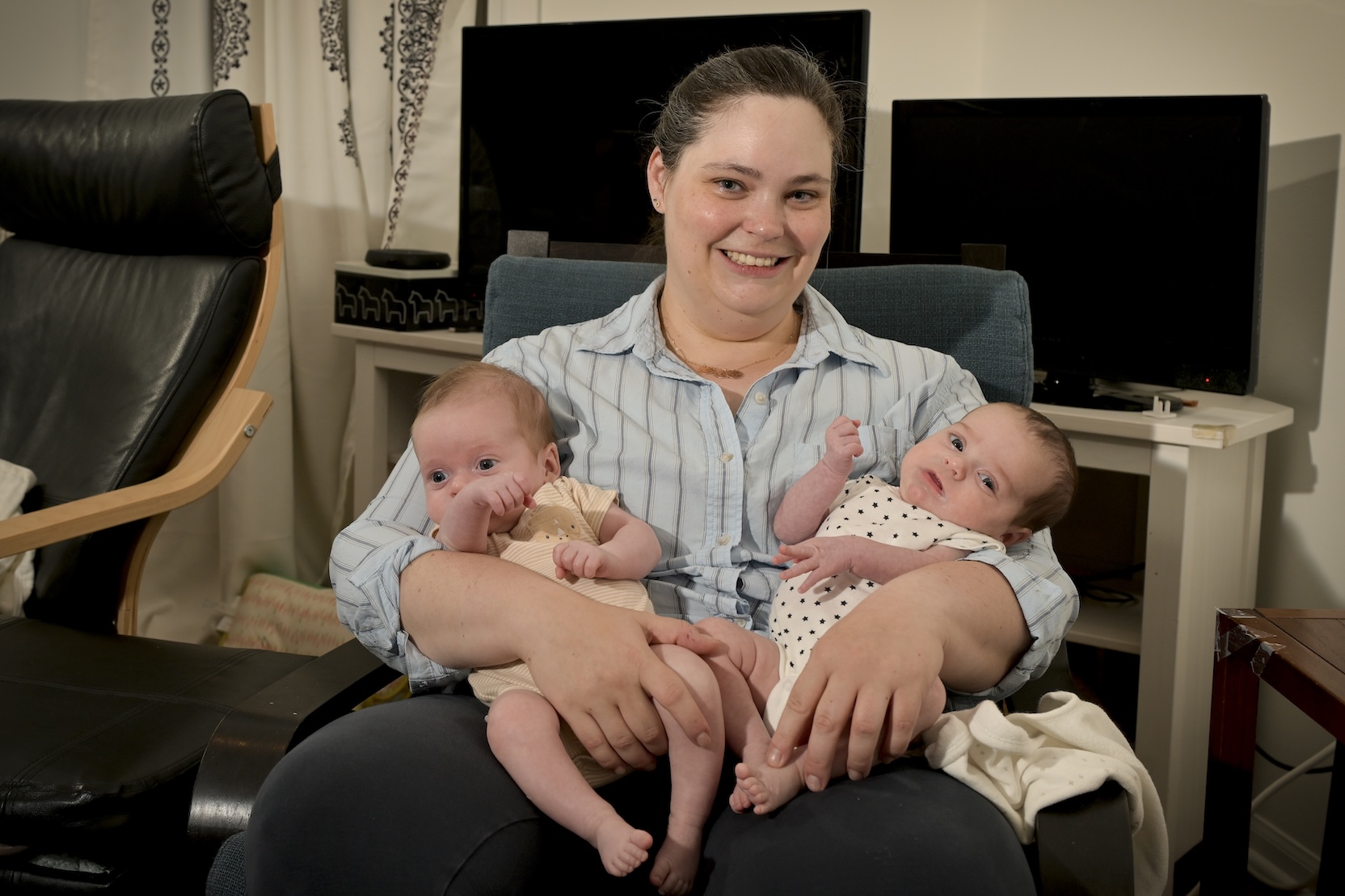
Healthy pregnancy and delivery
In July, Huggins, a 38-year-old medical librarian from River Forest, gave birth to healthy twins at UChicago Medicine.
“It was a much more holistic experience,” she said. “I got so much more support and rest this time.”
She strongly recommends that mothers-to-be with Crohn’s use a maternal-fetal medicine doctor who has a relationship with their respective gastroenterologist.
“It’s a small thing but it’s a big deal, because there’s no way to predict what will happen during and after pregnancy and birth,” Huggins said. “Even though my Crohn’s is under control, it’s so helpful to have that line of communication open. It was reassuring to know that my two specialists talked to each other and were able to coordinate care.”
Research studies on IBD and pregnancy
Clinic patients have the option to contribute their health data to research studies on IBD and pregnancy. UChicago Medicine’s IBD Center is a main site for the Pregnancy in IBD and Neonatal Outcomes (PIANO) Registry, which evaluates the safety of IBD medications in pregnancy in long-term and short-term outcomes for children. It’s also participating in the Women with Inflammatory Bowel Disease and Motherhood (WIsDoM) Study, which studies the impact of IBD on fertility.
Pregnancy and Pre-conception Inflammatory Bowel Disease Clinic
At the Pregnancy and Pre-conception Inflammatory Bowel Disease (PPIBD) Clinic at the University of Chicago Medicine, our specialists have extensive experience helping women with IBD. Our team includes experts with additional training and research interests in pre-conception and pregnancy in women with IBD, as well as maternal-fetal medicine specialists and a team of genetic counselors.
Learn more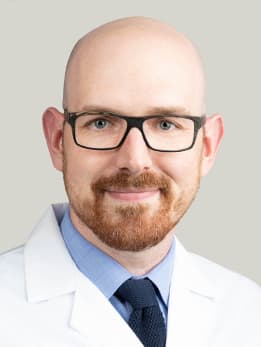
Andrew C. Rausch, MD
Andrew Rausch, MD, specializes in maternal-fetal medicine, and treats women with high-risk pregnancies. Dr. Rausch cares for patients with pre-existing medical conditions, such as hypertension and cancer, as well as pregnancy specific problems like gestational diabetes or pre-eclampsia.
Learn more about Dr. Rausch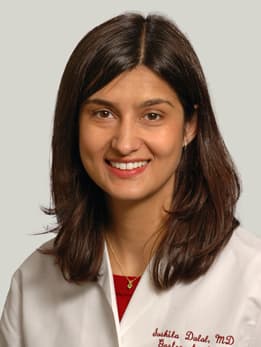
Sushila Dalal, MD
Gastroenterologist Dr. Sushila Dalal cares for patients with inflammatory bowel disease (Crohn's disease and ulcerative colitis). She is interested in the unique challenges that face women with IBD.
Learn more about Dr. Dalal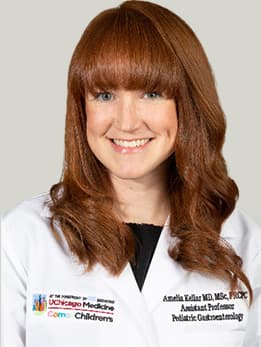
Amelia Kellar, MD, MSc
Amelia Kellar, MD, MSc, is a pediatric gastroenterologist specializing in Inflammatory Bowel Disease (IBD). She is the Director of the Pediatric Intestinal Ultrasound (IUS) Program and Associate Director of the Pediatric IBD Program at Comer Children's Hospital.
Learn more about Dr. Kellar